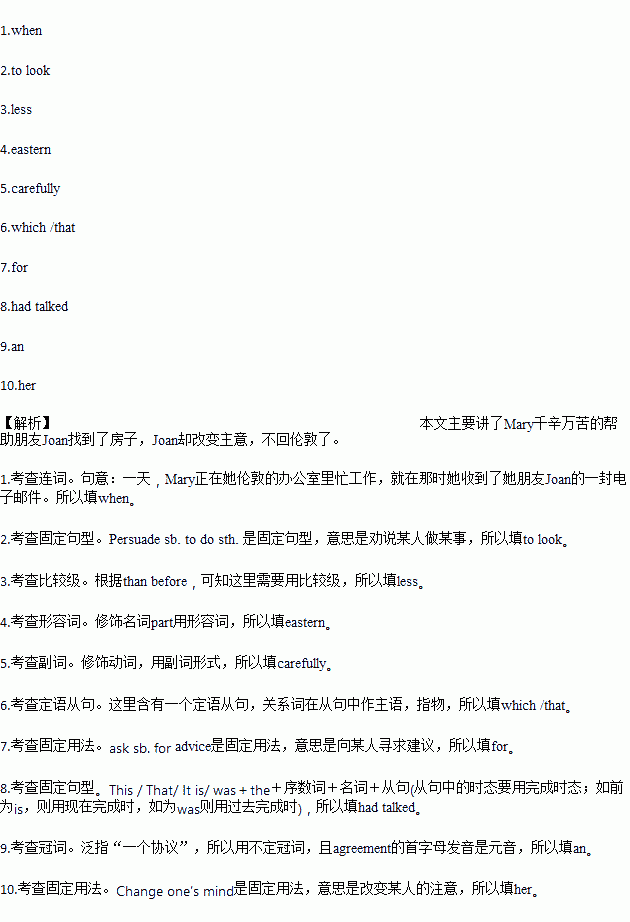题目内容
One day Mary was busy working in her office in London 1. she received an E-mail from her friend Joan. In Joan’s e-mail, she persuaded Mary 2.( look) for a flat in London for her. As she had 3. (little) money at her command than before, the flat had to be cheap, but it had to be modern, with elevators and gas lines. It had to be in the 4. (east) part of London, with petrol and subway stations nearby. Though Mary found it difficult to find such a flat, she still went 5.(care) from one block(街区) to another, looking for a flat 6.would meet(满足) Joan’s requirements. Having tried too many times, Mary met her boss and politely asked him 7.advice. It was the first time that she 8. (talk) with his boss about her personal problems. It happened that the boss just had such a flat for rent, so they quickly reached 9.agreement(协议). But to her surprise, when she e-mailed Joan, telling her the good news, Joan said that she had changed 10.(she) mind—she was not returning to London.
 期末1卷素质教育评估卷系列答案
期末1卷素质教育评估卷系列答案


 ),并在其下面写出该加的词。
),并在其下面写出该加的词。